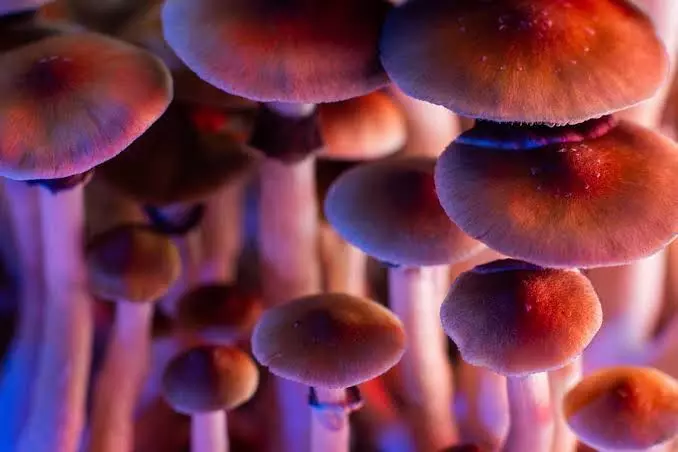Microdosing: Hyderabad doctors say psychedelic mushrooms may help individuals struggling with mental health issues
While psilocybin has long been known for its hallucinogenic properties, recent investigations have focused on its role in treating mental disorders, primarily depression and addiction
By Anoushka Caroline Williams
Representational Image
Hyderabad: In a study published in the journal “Molecular Psychiatry”, researchers have delved into the potential therapeutic applications of psilocybin, the active compound found in psychedelic mushrooms.
While psilocybin has long been known for its hallucinogenic properties, recent investigations have focused on its role in treating mental disorders, primarily depression and addiction, through therapy accompanied by high doses of the substance.
However, this new study takes a different route, exploring the effects of repeated low doses of psilocybin, often referred to as `microdosing’. This approach has gained popularity, particularly in performance-driven cultures like Silicon Valley, where individuals have turned to microdosing as a form of self-medication for various challenges.
Dr. Kiran Rathore, Clinical Psychologist at Behavioural Health & Counselling Clinic in Hyderabad explains, "Microdosing is a phenomenon popularized within performance culture, and has subsequently spread through stories and anecdotes on the internet as a form of self-medication for various challenges."
The study, conducted on rats, yielded intriguing results. The animals tolerated the repeated low doses of psilocybin well and did not exhibit signs of reduced pleasure (anhedonia), anxiety, or altered locomotor activity.
Most notably, the rats displayed increased resilience to stress and exhibited fewer compulsive behaviors. Additionally, there was a noticeable increase in the number of connections to the thalamus region of the brain, responsible for filtering decisions and concerns.
Rathore suggests, "The change in connectivity to the thalamus may contribute to our enhanced resilience to stress factors and could explain why so many people report positive effects on their well-being from small doses of psychedelic mushrooms."
This study has laid the groundwork for further research into the effects of repeated low doses of psilocybin and adds credibility to the anecdotal reports of microdosing enthusiasts who claim therapeutic benefits.
The implications are profound, potentially opening up new avenues for the treatment of various mental disorders.
To gain insights into the significance of this study in the context of Hyderabad, NewsMeter reached out to some more local psychologists and doctors.
Dr. Priya Sharma, a Hyderabad-based psychiatrist, commented, "This research offers a fresh perspective on the therapeutic potential of psychedelics. While more studies are needed, it's an exciting development that may provide alternative options for individuals struggling with mental health issues."
Dr. Rajesh Verma, a clinical psychologist in the city, added, "The increased focus on microdosing in today's stressful society has led many to explore unconventional treatments. This study highlights the need for comprehensive research into the effects and side effects of substances like psilocybin, especially as some countries, including the Netherlands, Australia, the US, and Canada, consider legalizing it for therapeutic use."
As our understanding of the potential benefits of microdosing expands, it is clear that further research and careful consideration are essential. While the path forward may be uncharted, the journey into the realm of psychedelic mushrooms as a tool for mental health continues to intrigue both scientists and those seeking innovative approaches to well-being.